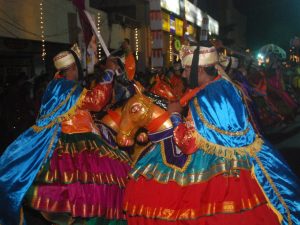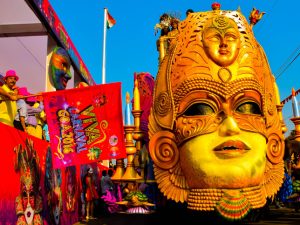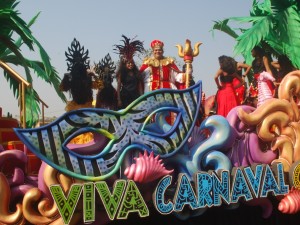Nitin Gadkari, Union Minister of Road Transport and Highways, Shipping and Water Resources, River Development and Ganga Rejuvenation inaugurated the Mormugao Port Trust and Drishti Marine’s inland ferry services in the port city of Vasco in Goa. The inaugural plaque was unveiled at the newly constructed Airport Ferry Terminal (AFT) at Baina beach. The ferry service is aimed at offering transport to tourists and locals from and to the airport to different parts of Goa. Drishti Marine operates passenger ferry operations on behalf of the Mormugao Port Trust (MPT). It undertook this project and constructed the fully dismantleable and environmental-friendly floating jetty and terminal at Baina Beach. At the inaugural ceremony, Gadkari said, “Our country has a 7,500 km long coastline, which can help the development of our country. The biggest advantage of tourism is that 49 per cent of the capital investment is utilised for job creation. If one wants to travel by road, the cost is Rs. 1.5 (per km), by railways the cost is Re. 1 (per km) and by water the cost is 20 paise (per km). The first phase will see the opening of routes between Vasco and Panaji and will eventually extend to other areas. Phase Two will start from the Airport Ferry Terminal to Baga, Siquerim, as well as Chapora Fort.
Read More »Goa’s Shigmo festivities to kick-start from March 3
After a successful Carnaval celebration, Goa is set to usher in Shigmo – a festival of colour, costumes and culture scheduled from March 3-17, 2018, beginning with the celebration of Holi. During the Shigmo parades, one gets a chance to take a glimpse at the life of a Goan which is depicted in elaborate folk performances by local men and women dancing tirelessly in huge processions. Traditional folk dances and performance of mythological scenes is the highlight of this parade. On the day of Shigmo, people in Goa are dressed up in colourful outfits, holding multi-coloured flags and playing musical instruments like the Dhol Tasha and flutes in processions across the cities along with floats that parade through the streets. Folk dances like Ghode Modni and Fugdi are performed on the streets in massive troupes along the procession. An interesting element of the Shigmo is the tradition of covering each other with colourful powder and bright paints. The float parade is organised across different cities of Goa like Ponda, Margao, Vasco, Sanguem, Sanquelim, Valpoi, Bicholim, Panjim, Mapusa, Pernem, Canacona, Quepem, Curchorem, Cuncolim and Dharbandora.
Read More »Goa enforces strict rules for its annual Carnaval
Goa Tourism Minister Manohar Ajgaonkar along with other officials and representatives from the government, Goa police, traffic police, municipal bodies have deliberated over the last few weeks to take stock of every minute detail towards ensuring the successful conduct of Goa’s gala festival – Carnaval, set to be held from February 10-13, 2018. Polluting vehicles in the junk car category will not be allowed in the parade and no offensive exposure will be permitted. Consumption of liquor and carrying of lethal weapons will not be permitted on the floats during the parade. All committees are in the process of submitting their centrewise programmes to be carried out during Carnaval. Likewise, committees have been directed to take assistance from the police and district administration for ensuring security arrangements at the events and parade routes. Float parades in the four major cities will be held as follows – Panjim on February 10, Margao on February 11, Vasco on February 12 and Mapusa on February 13. All floats in the parades will be screened by a committee to ensure that it follows the theme and does not violate any of the rules and regulations.
Read More »Annual Goa Carnaval from February 25-28
Goa Tourism will organise the annual Goa Carnaval from February 25-28, 2017 in Panjim. The state will come alive to celebrate the four-day event with spectacular float parades, Carnaval festivities and an array of events and activities. The float parades will take place in four cities of Panjim, Margao, Vasco and Mapusa. The government has formed various Carnaval committees and drawn up guidelines for smooth conduct of the four-day festivities. In addition to maintaining the traditional and cultural essence of Carnaval, this year the focus is weeding out non eco-friendly floats, polluting vehicles and a total crackdown on indecency.
Read More » Tourism Breaking News
Tourism Breaking News



